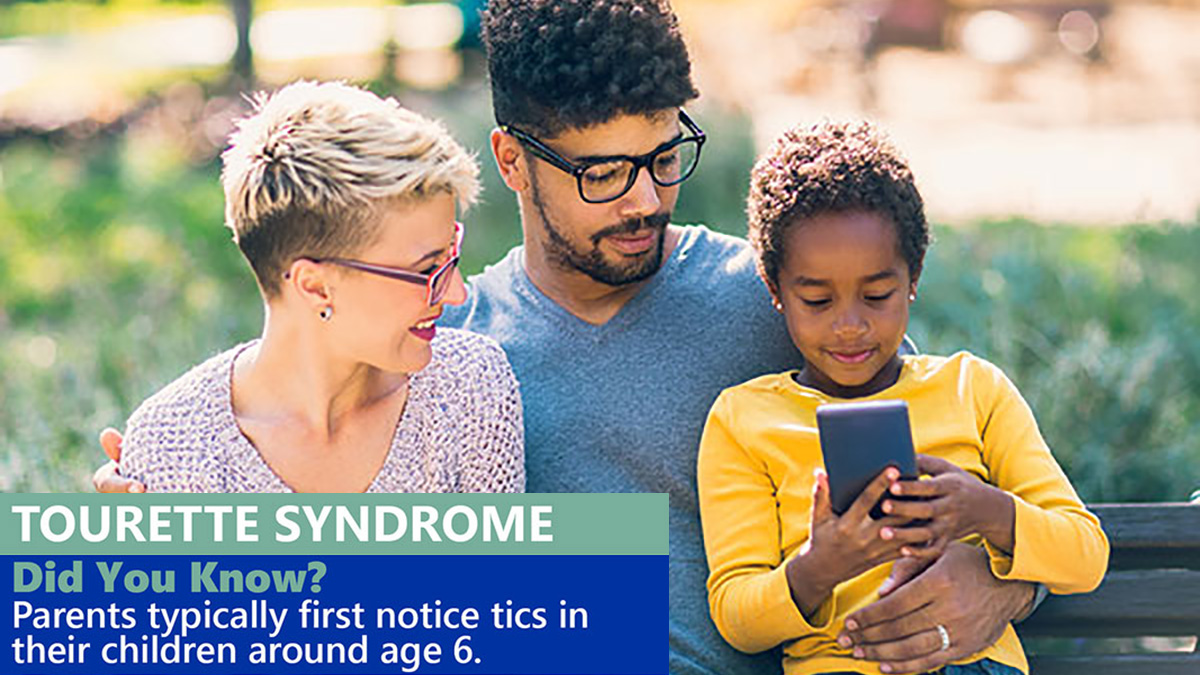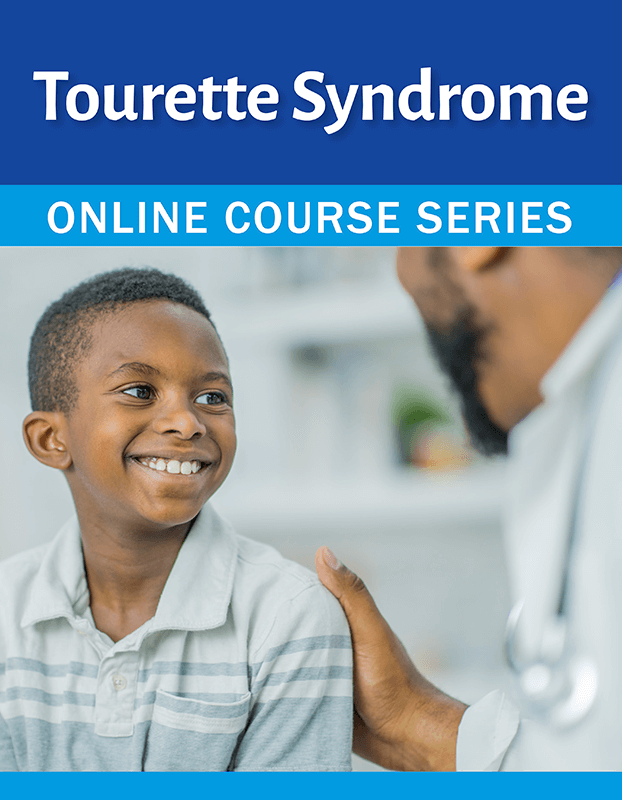At a glance
- CDC and its partners offer trainings and other educational resources to help improve the identification of tic disorders.
- CDC conducts research on tools to help improve screening and identification of tic disorders.

Background
Around 1 million people in the United States have Tourette syndrome (TS) or another tic disorder. More than half of children with TS do not get diagnosed. Identification of tic disorders helps people get the treatment and help they need. CDC and partner resources help improve the identification of tic disorders.
More information about TS
Education and support
CDC's National Center on Birth Defects and Developmental Disabilities has partnered with the Tourette Association of America (TAA) to provide educational programs to improve awareness of tic disorders and TS so that more people with tic disorders get the right diagnosis, care, and support. The programs use up-to-date, science-based information to educate physicians and allied professionals and school personnel, as well as those who have TS, their families, and the general public, about TS.
In addition to education, the CDC's partnership with TAA helps people with a tic disorder and their families make meaningful connections:
Support for families
TAA's ambassador program
- Youth Ambassador Program | TAA (ages 12-17 years)
- Junior Youth Ambassador Program | TAA (ages 7-11 years)
- Rising Leaders | TAA (ages 18-25 years)
Trainings for healthcare providers
CDC has partnered with the American Academy of Pediatrics (AAP) to develop and offer free virtual trainings on tic disorders. This three-part course series is available to pediatricians and other healthcare providers.
3-Part PediaLink® TS Course Series — On-Demand
Screening and diagnostic tools
In addition to education about tics and tic disorders, healthcare professionals need tools to screen and identify tic disorders, and such tools are currently limited. CDC has worked with academic partners to conduct multiple studies on screening and diagnostic tools to improve identification of children with tics and tic disorders.

Click the dropdown menu below for more findings on screening and diagnostic tools for tic disorders:
- Health Care Providers' Attitudes and Knowledge Related to Tic Disorder Identification and Treatment. Newsome K, Hutchins HJ, Bitsko RH, et al. J Dev Behav Pediatr. 2025;46(2):e175-e182.
- Development of a tic screener: The motor or vocal inventory of tics (MOVeIT-14). Evidence-Based Practice in Child and Adolescent Mental Health. Lewin AB, Brennan E, Small B, Bolton C, Dickinson S, Murphy TK. Evidence-Based Practice in Child and Adolescent Mental Health. 2024 Mar 7:1-1.
- Performance of a Tic Screening Tool (MOVeIT) in Comparison to Expert Clinician Assessment in a Developmental-Behavioral Pediatrics Clinic Sample. Vermilion JA, Bitsko RH, Danielson ML, Bonifacio KP, Dean SL, Hyman SL, Augustine EF, Mink JW, Morrison PE, Vierhile AE, Sulkes SB. Evidence-Based Practice in Child and Adolescent Mental Health. 2023 Nov 17:1-7.
- A Population-Based Study of the Utility of Screening for Tics and the Relative Contribution of Tics and Psychiatric Comorbidity to Academic and Social Impairment in Adolescents. Smith JN, Owens JS, Evans SW, Bitsko RH, Holbrook JR. Evidence-Based Practice in Child and Adolescent Mental Health. 2023 Oct 8:1-3.
- Brief youth self-report screener for tics: Can a subscale of the Motor tic, Obsession and compulsion, and Vocal tic Evaluation Survey (MOVES) identify tic disorders in youth?. Lewin AB, Murphy TK, Mink JW, Small BJ, Adams HR, Brennan E, Augustine EF, Vermilion J, Vierhile A, Collins A, Kudryk K. Evidence-Based Practice in Child and Adolescent Mental Health. 2023 Mar 31:1-1.
- Validation of the diagnostic interview schedule for children (DISC-5) tic disorder and attention-deficit/hyperactivity disorder modules. Bitsko RH, Holbrook JR, Fisher PW, Lipton C, van Wijngaarden E, Augustine EF, Mink JW, Vierhile A, Piacentini J, Walkup J, Firchow B. Evidence-Based Practice in Child and Adolescent Mental Health. 2023 Mar 27:1-4.
- Evaluation of new instruments for screening and diagnosis of tics and tic disorders in a well-characterized sample of youth with tics and recruited controls. Adams HR, Augustine EF, Bonifacio K, Collins AE, Danielson ML, Mink JW, Morrison P, van Wijngaarden E, Vermilion J, Vierhile A, Bitsko RH. Evidence-Based Practice in Child and Adolescent Mental Health. 2023 Mar 25:1-5.
- American Academy of Pediatrics (AAP). Tourette Syndrome Course Series. Available at: https://www.aap.org/Tourette-Syndrome-Course-Series. Accessed on May 30, 2024.
- American Academy of Pediatrics (AAP). Early Identification and Diagnosis of Tourette Syndrome. Available at: https://www.aap.org/Early-Identification-and-Diagnosis-of-Tourette-Syndrome. Accessed on May 30, 2024.







